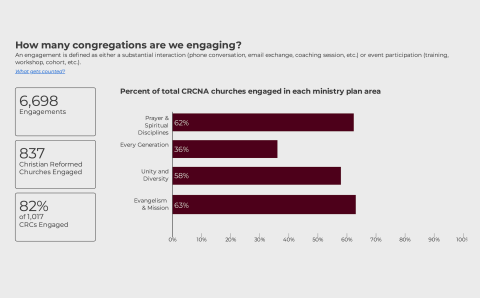As I've written before, I believe our denomination struggles with spiritual pride in its perceived theological superiority ("Revival and Spiritual Pride," June 2021). In his classic Mere Christianity, C.S. Lewis devoted an entire chapter to the sin of pride. He called it “The Great Sin.” Why? “According to Christian teachers,” wrote Lewis, “the essential vice, the utmost evil, is Pride. Unchastity, anger, greed, drunkenness, and all that, are mere fleabites in comparison: it was through Pride that the devil became the devil: Pride leads to every other vice: it is the complete anti-God state of mind” (p. 109).
If you think Lewis was exaggerating, consider that many great theologians of the past, from Augustine and Aquinas to Luther and Calvin, considered pride as “the essence and root of sin” (New Dictionary of Christian Ethics & Pastoral Theology, p. 685). Pride was believed to have caused the angel Lucifer to fall into becoming Satan. Pride in desiring to be like God was the root of Adam and Eve’s fall into sin. Historically, Christianity has regarded pride—especially spiritual pride—as one of the greatest sins. And yes, pride, as Lewis suggested, is worse than sexual immorality.
We often think that Sodom’s great sin was homosexual immorality. But God didn’t seem to think so: “Now this is the sin of your sister Sodom: She and her daughters were arrogant, overfed, and unconcerned; they did not help the poor and needy. They were haughty and did detestable things before me. Therefore I did away with them as you have seen” (Ezekiel 16:49-50). God’s emphasis here was clearly on Sodom’s pride—their arrogance and haughtiness—and their lack of compassion for the poor and needy. Homosexual immorality might fall under “detestable things,” but that accusation is muted at best. God was more worried about pride than about any sexual sin.
As Lewis wrote, “If anyone thinks that Christians regard unchastity as the supreme vice, he is quite wrong. The sins of the flesh are bad, but they are the least bad of all sins. All the worst pleasures are purely spiritual. … That is why a cold, self-righteous prig who goes regularly to church may be far nearer to hell than a prostitute. But, of course, it is better to be neither” (p. 94-5).
Even so, I can’t remember the last time I heard a sermon on pride. Have we lost this historic emphasis? Have we been shaped by our North American culture, which often celebrates and rewards prideful demeanors and behaviors? Yet Scripture says, “God opposes the proud but gives grace to the humble” (James 4:6; 1 Peter 5:5).
Of course, we are not talking about healthy pride or self-esteem (see 2 Cor. 5:12; Gal. 6:4), or being proud of worthy achievements. Sinful pride, according to Lewis, is “competitive by its very nature.” It is always about being better—e.g. more righteous—than someone else. What’s more, sinful pride is self-deceptive (Obad. 3; Jer. 49:16): it deceives us into thinking we are not proud, or worse, gives us false humility. We confess to God we are nothing but still imagine (perhaps subconsciously) that God approves of us and sees us as better than others.
How do we resist sinful pride and acquire true humility? The first step is to recognize that we are all guilty of sinful pride. As Lewis said, “If you think you are not conceited, it means you are very conceited indeed” (p. 114). Let us regain historic Christianity’s emphasis against the sin of pride.
About the Author
Shiao Chong is the former editor-in-chief of The Banner. He served as editor from 2016 to 2025. He attends Fellowship Christian Reformed Church in Toronto, Ont.
Shiao Chong es el redactor jefe de The Banner. El asiste a Iglesia Comunidad Cristiana Reformada en Toronto, Ont.
시아오 총은 더 배너 (The Banner)의 편집장이다. 온타리오 주 토론토의 펠로우쉽 CRC에 출석한다.
You can follow him @shiaochong (Twitter) and @3dchristianity (Facebook).








